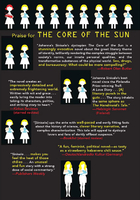Three years later (1537) MacGillapatrick of Ossory promised faithfully to abolish the usurped jurisdiction of the Pope, to have the English language spoken in his territories, and to send his son to be brought up with a knowledge of the English language and customs. In return for this he received a royal grant of his land and possessions, was created Baron of Colthill and Castleton, and was promised a seat in the House of Lords, a favour which he obtained in 1543, when he was appointed a peer[46] with the title of Baron of Upper Ossory. Brian O'Connor of Offaly and his rival Cahir made their submission in March 1538. They renounced the jurisdiction of the Pope, agreed to hold their lands from the king, and to abandon all claims to tribute or black rent from their neighbours of the Pale. Brian O'Connor was created Baron of Offaly. He was followed in his submission by the Earl of Desmond (1541), MacWilliam Burke, O'Brien of Thomond, Manus O'Donnell (Aug. 1541) and finally by Con O'Neill (1542). All these, together with a host of minor chieftains and dependents, renounced the authority of the Pope, accepted re-grants of their lands from the king, begged for English titles, and did not think it beneath their dignity to accept gifts of money and robes. Con O'Neill became Earl of Tyrone, his son Matthew Baron of Dungannon, O'Brien Earl of Thomond, his nephew Donogh Baron of Ibricken, MacWilliam Burke Earl of Clanrickard, while knighthoods were distributed freely among the lesser nobles.[47] Although there may have existed in the minds of the Irish chieftains a certain amount of confusion about the temporal and spiritual jurisdiction of the Pope, especially as the Popes seem to have claimed a peculiar sovereignty in Ireland, yet it is impossible to suppose that they could have acted in good faith in signing the documents of submission to which they attached their signatures. That they recognised the dangerous and heretical tendencies of Henry's religious policy is evident enough from the correspondence of the years 1537-39, and that they never made any serious efforts to carry out the terms of these agreements must be admitted. It is quite possible that like the noblemen of England they were personally willing to acquiesce in Henry VIII.'s religious policy for the sake of securing good terms for themselves, but that they found it impossible to do anything on account of the opposition of the vast body of the people. Henry VIII. recognised that he was not in a position to enforce his authority in case of O'Brien, O'Donnell, O'Neill, MacWilliam Burke, etc., and hence he advised his officials to seek to win these over by kindness and persuasion rather than by force. In particular they were to endeavour "to persuade them discreetly" to suppress the religious houses in their territories, but at the same time no attempt was to be made "to press them overmuch in any vigorous sort."[48] O'Brien of Thomond and Desmond were not unwilling to share in the plunder of the monasteries, but as a rule the condition of affairs as regards religion was but slightly affected by the submissions of the chieftains.
The new Deputy, Anthony St. Leger (1540), was well fitted to profit by the military successes of Lord Grey. As a royal commissioner three years before he had ample opportunity of knowing the condition of Ireland, the characters of the principal leaders, and the inducements by which they might be tempted to acknowledge the authority of the King of England. He relied upon diplomatic rather than military pressure, and he was so completely successful that the privy council could report in 1542 that Ireland was at peace. Already in 1537, Alen, the Master of the Rolls, had called the attention of the royal commissioners to the fact that many of the Irish regarded the Pope as the temporal sovereign of Ireland and the King of England only as Lord of Ireland by virtue of the Papal authority, and advised them that Henry should be proclaimed King of Ireland by an Act of Parliament.
This advice was approved warmly by Staples, Bishop of Meath (1538), and was endorsed by the Deputy and council in a letter addressed to Henry VIII. in December 1540.[49] The suggestion was accepted by the king, who empowered St. Leger to summon a Parliament to give it effect (1541).
Parliament met in June 1541. How many members attended the House of Commons or what particular districts were represented is not known for certain; but in all probability it was only from the eastern and southern counties and cities that deputies were appointed. In the House of Lords there were present two archbishops together with twelve bishops, the Earls of Ormond and Desmond, and a number of viscounts, lords and barons, nearly all of whom belonged to the Anglo-Irish faction. O'Brien of Thomond did not attend, but he sent deputies to represent him; O'Donnell and O'Neill held themselves aloof from the proceedings; and Donogh O'Brien, MacWilliam Burke, Cahir MacArt Kavanagh, O'Reilly, Phelim Roe O'Neill of Clandeboy, and Kedagh O'More attended in person, but were not allowed to take an active part in the proceedings or to vote.[50] A bill was introduced by St. Leger bestowing on Henry VIII. the title of King of Ireland, and was read three times in the House of Lords in one day. The next day it was passed by the House of Commons. It was agreed that the monarch should be styled "Henry VIII. by the Grace of God King of England, France, and Ireland, Defender of the Faith, and of the Church of England, and also of Ireland, on earth the Supreme Head." The proclamation, it was reported, was received with joyous acclamation in Dublin, where a modified general amnesty was declared in honour of the happy event.
The report of what had taken place produced undoubtedly a great effect on those princes who still held aloof, so that before the end of the year 1542 even Con O'Neill had made an ignominious peace with the government.















